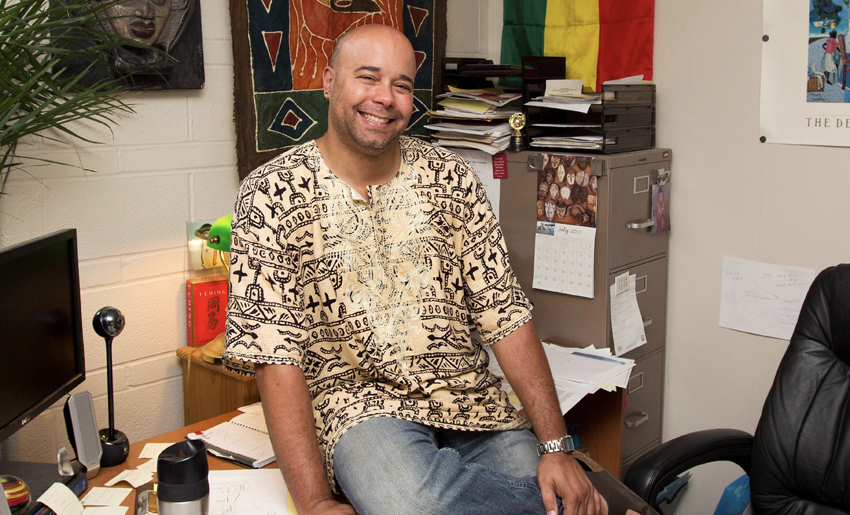Matt T. has spent over 20 years examining how people think, particularly when it comes to race and ethnicity. Currently, he is an Associate Professor of Psychological Sciences and the Associate Dean For Faculty Affairs in the College of Arts & Sciences at the University of Missouri-St. Louis, with an interest in minority mental health.
Disparities, accessibility, and individualism
Matt thinks COVID-19 has exposed fatal flaws in our healthcare system. From the start of the pandemic, historically marginalized poor people of color were getting sick and dying. He notes the struggles of essential workers who cannot work from home and rely on public transportation, and the additional challenges faced by these workers with children shifting to virtual learning. Matt says, “The fact that healthcare is commodified here by private organizations, including insurance companies, has really shown who has been able to access healthcare.” He says some countries with universal healthcare made testing easy and readily available. “Those rates skyrocketed and then declined.”
Matt’s not surprised that more collectivistic countries, where people are socialized from day one into caring for the community as a whole, seem to manage spikes in the virus rate better. His colleagues in South Africa detailed how their quarantine had included not being able to purchase alcohol or tobacco to reduce trauma admissions to the hospital. “It was hardcore,” he says.
In the United States, individual freedom is part of American culture. “Telling people to wear a mask is like telling people not to smoke on our smoke-free campus,” he says, “they’re probably going to put that cigarette out on your forehead.”
Unrest
Matt recently spoke to his daughter’s college class about the protests over racial injustices. He showed slides from trips to West Africa and the slave castles; he continued with talking about Jim Crow laws and lynchings to the present day. “They’re not upset because of this one event,” he explained, “it’s one more of a similar event that’s taken place, consistently, for a couple of hundred years.” Matt does not think the system is broken. He states, “It’s working exactly how it was set up—to benefit a very small percentage group of people—and it’s always worked that way. To undo it is going to take massive changes, even from a constitutional standpoint.”
Forming opinions
Matt says before online media, the news used to be closer to neutral, where the foundation of the job was to show all sides of a story. “Now, it’s click-bait,” he says, “I want to put out the craziest, most inflammatory sort of thing so I can get people to click into my site. People now think op-eds are actually news.”
He warns about relying on online messaging and assuming that a person can find the information, read it, digest it, and understand it. He says, “There are a lot of steps there before there’s a behavioral action step.”
Matt instructs his students to get their news from diverse sources, politically and globally, to get outside their news bubbles. “Every day, read CNN, BBC, Al Jazeera, and Fox News,” he recommends, “You’ll see the same story told from different perspectives. Then, form your opinion.”
He encourages a similar approach to meeting new people. “You don’t know who you’re stepping to. Get their story. You don’t know what their background is, what their framework is, what they’ve experienced—just have a conversation.”
